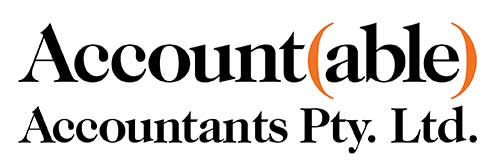TIPS FOR SMALL BUSINESSES IMPACTED BY COVID-19
TIPS FOR SMALL BUSINESSES IMPACTED BY COVID-19

Every Business will feel the impact of the current situation. People living in restricted areas will result in people consuming less and purchasing in different ways. It will also impact staff availability, especially for businesses where employees cannot work from home. It is also likely that your operations will be impacted by supply disruptions as your suppliers’ grapple with the same issues.
In short, COVID-19 will be a shock to many businesses that could place their immediate future in serious jeopardy, and there is no way of knowing how long this pending crisis will last.
As part of a comprehensive risk management strategy there are a range of actions you should consider taking now to prepare.
UPDATE YOUR FINANCIAL STATEMENTS
To be able to make the best possible decisions in a difficult environment, you need access to the most up-to-date information on the state of your business finances. Therefore, we recommend you bring your financial statements up to date and keep them up to date
LIST POSSIBLE IMPACTS On YOUR BUSINESS
The impacts on a business will likely be most significant in the following area:
- Sales – particularly if you have little to no online presence.
- Staff availability – with people likely to be subject to restrictions on their movement, their ability to work will be curtailed, particularly if there is limited scope for them to work from home.
- Supply chain – particularly if you rely on suppliers from badly impacted parts of the world.
- Finance – particularly if your cash reserves are low
PERFORM A FINANCIAL HEALTH CHECK ON YOUR BUSINESS
Knowledge of the financial health of your business is fundamental to assisting you decide what you can and should do now to place your business in the best possible position to navigate through the crisis.
RE-DO YOUR BUDGETS WITH NEW ASSUMPTIONS
The assumptions you may have used to produce your budget are most likely no longer relevant because of the crisis. Working with your accountant, take the list of possible impacts of COVID-19 you have developed and re-do your budgets. Include a range of possible previously unthinkable scenarios, such as a 50 to 80 per cent decline in sales over three to six months, or a supplier being unable to supply you a key item for six weeks.
ACT NOW TO IMPROVE CASH FLOW
After re-doing your budgets and determining the financial health of your business, including your cash reserves, you are likely to find your business will struggle with cash flow in the near future. You must therefore act now to improve cash flows. The first step to improving cash flow is to prepare a cash flow forecast, and updating that forecast throughout the crisis, possibly weekly. This will give you forewarning of any cash flow problems so you can act early to address them.
The following tips to improve your cash flow may appear unorthodox and extreme. Some of them we would not recommend in a normal situation, however you may soon be operating in an environment you have never experienced:
Stock Management
- Take steps to increase sales, especially of stock that may not last three to six months.
- Focus your promotions towards these stock items.
- Reduce stock orders, particularly stock you assume will be in low demand during the crisis.
- Increase purchases of stock you think will be in high demand during the crisis.
- Promote the selling of excess, slow moving and/or obsolete stock.
Debtors Management
- Contact your debtors and ask them to pay you, even if before the due date.
- If your debtors are experiencing cash flow difficulties themselves, negotiate periodic payments and make sure they stick to their side of the deal.
- Invoice as soon as the product or service is delivered … don’t delay.
- Produce aged debtor reports and follow up with aged debtors.
- Reduce debtors by encouraging customers to pay at the point of purchase or to pay early.
- Only pay commission to sales staff when payment is received on their sales.
- Review your sales contracts to determine under what circumstances customers can cancel orders. If necessary, update those contracts to limit the ability of customers to cancel orders.
Creditors Management
- Seek payment extensions, even temporarily to your credit terms with suppliers.
- Check your supply contracts to determine under what circumstances you can cancel orders if necessary, or at least delay delivery.
- Negotiate instalment plans with the tax authorities.
Spending
- Cut spending you believe unnecessary in a crisis, such as advertising.
- Delay unnecessary capital expenditure.
- Look to reduce staff costs by reviewing staffing arrangements. This could include reducing employee or contractor numbers, reduced working hours or implementing a recruitment freeze. You may need to seek advice as to how to do this.
- Reduce your drawings from the business.
Seek finance to fill cash shortfalls
- Speak to your lender about introducing or increasing your overdraft facility. Demonstrate that you are on top of your business and understand your cash flow.
- Determine your own personal cash position to see if you can inject cash into your business.
- Seek out other investors to see if they can inject cash into the business.
INCREASE ONLINE SALES
Recent experience from markets already impacted by the virus shows that customers are likely to stay home (whether at the instructions of health authorities or by choice), and therefore, purchase more online. To remain viable, many small businesses will need to begin selling online or increase how much they sell online.
A key part to preparing for the crisis is investigating different online platforms to see which one is best to sell your products to reduce your reliance on your shop front. You should also review how best to deliver your products to the customer. Your accountant may be able to assist you with these important considerations.
Suppliers of services should investigate digital solutions to the delivery of services to reduce the need for face to face contact. Consequently, you may choose to close some of your physical locations.
CHANGE YOUR BUSINESS MODEL
Increase your investment in selling online. If you are not selling online, you should seriously consider doing so. Look at different ways to deliver your product or service to your customers.
IDENTIFY EMPLOYEES WITH CRITICAL SKILLS FOR YOUR BUSINESS
Consider which of your employees are not easily replaced as well as which business functions need to keep operating regardless. Look for others who can learn the task. Outsourcing may be an alternative solution.
Where such employees can work from home, make sure they take the equipment (such as a laptop) they need to work from home, with them every night in case you have to close your premises at short notice. Consider developing a special roster so that critical staff are always available to keep essential business systems and processes running.
DO A REALITY CHECK ON YOUR BUSINESS
Use the crisis as an opportunity to reflect on your business, how it was being run, how you would like it to run post crisis and whether it is still right for you.
Questions to ask yourself include:
Were you happy running your business before the crisis?
Were you making the profit you wanted?
Do you like being your own boss?
Was there adequate cashflow in the business prior to the crisis?
Are you achieving the return on investment you want from your business?
Are you prepared for the potential extra demands that recovering your business will place on you, both personally and financially?
Can you afford to continue to run the business while your business is recovering?
Can you foresee any possible emerging opportunities for your business following the crisis?
WE ARE HERE TO HELP YOU
Please contact us if you need any support navigating through some of these issues. A fresh set of eyes can be worth more than you know and someone to bounce ideas off may help you and your business come out the other side in a better position.
